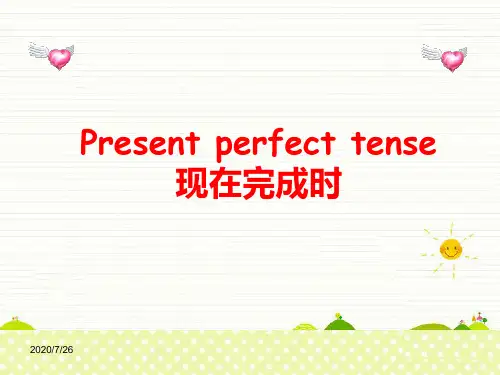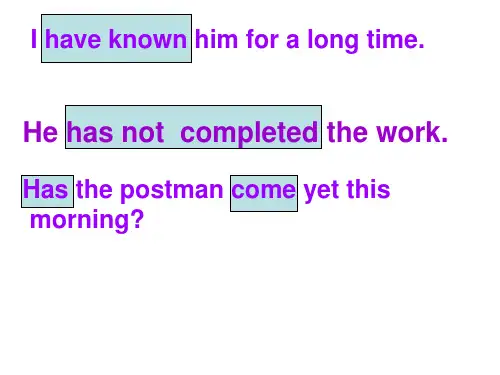B.表示过去已经开始、持续到现在(也许还 会继续进行下去)动作或状态,常和表示一 段时间状语,如:today, these days, since…,for…,this month,now等连用。例 如:I have studied English for two years.
我学英语已经两年了。
6.I am not hungry.I ____just____(have) my dinner.
7.Don’t worry. The train____yet.
A.arrived B.won’t arrive C.hasn’t arrived
(3) 用法
A表示过去发生或已经完成的某一动作对现在 造成的影响或结果。例如:
现在完成时优秀课件
现在完成时
(1) 构成:现在完成时由“have/has+ 动词的过去 分词”构成。
(2)
现在完成时的肯定式、否定式和疑问式
及简单回答形式(以动词study为例):
(3)
肯定式:I (You)have studied.
(4)
He(She, It) has studied.
(5)
We(You,They) have studied.
She has been back for two years.(正)
She has come back for two years(误)
终止性动词完成时的否定式表示一种否定状态是可以延续的, 所以其否定式可以和段时间状语连用。
如:I haven’t seen him for ages.我好久没见到他了。 (现在仍没见到他)
助动词have (has) + 动词的过去分词 注:has 用于第三人称单数,have 用于其他所有 人称。规则动词的过去分词变化与过去式相同, 不规则变化则须单独记忆。










